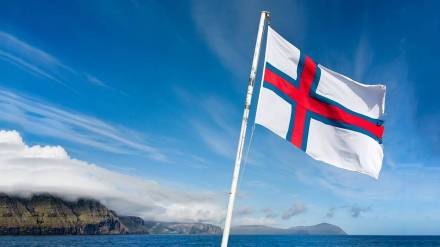Ahead of the India-Nordic Baltic Conclave in New Delhi, Prime Minister Aksel Johannesen of the Faroe Islands engaged in constructive discussions with External Affairs Minister S Jaishankar. The Faroe Islands, functioning as an autonomous territory of Denmark, aligns itself strategically with the Nordic countries.
Accompanied by a substantial business delegation, the visiting leader during talks with Jaishankar explored potential collaboration in diverse sectors, including fisheries, information technology, and healthcare. The dialogue between the two leaders extended to encompass discussions on Arctic Policies, underscoring the increasing importance of environmental considerations in their deliberations.
India and Lithuania
Simultaneously, in a parallel diplomatic event, New Delhi hosted the 9th Foreign Office Consultations (FOC) between India and Lithuania. A comprehensive review of bilateral engagements unfolded, with officials exchanging perspectives on regional and global matters of mutual interest. This encompassed discussions on developments in respective neighbourhoods, the Ukraine conflict, the European Union, India’s Presidency of G20, multilateral cooperation, and reforms within the United Nations Security Council (UNSC).
Highlighting the profound significance of trade and investments, both nations explored avenues to deepen relations across various sectors. The Indian delegation, led by Sanjay Verma, Secretary (West) from the Ministry of External Affairs, engaged in substantive discussions with counterparts from Lithuania, led by Egidijus Meilūnas, Vice-Minister of Foreign Affairs.
Shifting focus to the India-Nordic Baltic Conclave
The second edition is deliberately designed to foster enduring synergies between investors from both regions. This two-day event starting tomorrow, organized by the Confederation of Indian Industry (CII) with support from the Ministry of External Affairs, seeks to facilitate dialogues, address challenges faced by Indian businesses in the Nordic-Baltic cooperation region, and explore untapped opportunities.
Delving into the dynamics of sectoral cooperation, the Nordic-Baltic (NB8) countries emerge prominently as global leaders in numerous fields. These include digitization, maritime solutions, port modernization, food processing, health and life sciences, renewable energy, artificial intelligence, agriculture, innovation, skill development, e-mobility, and more.
India’s deepening engagement with NB8 countries is underscored by various strategic partnerships, such as the India-Denmark Green Strategic Partnership and collaborative initiatives with Norway, Finland, Sweden, Iceland, and Estonia across diverse domains.
Trade with NB8
Trade statistics, reflective of this robust economic exchange, indicate that India’s combined goods trade with NB8 countries amounted to US $8.036 billion in the fiscal year 2021-22. Additionally, cumulative Foreign Direct Investment (FDI) from NB8 countries into India stood impressively at US $4.307 billion from April 2000 to December 2022.
The India-Nordic Framework/Summits have emerged as instrumental platforms, significantly enhancing diplomatic interactions. Prime Ministerial visits to Stockholm in 2018 and Copenhagen in 2022 have played pivotal roles in laying the foundation for bilateral cooperation and in-depth discussions on various fronts.
Nordic-Baltic cooperation
Constituting five Nordic and three Baltic countries, operates as an informal regional platform. Defined by cultural and social similarities, these nations, surrounded by expansive oceanic landscapes, collectively address mutual concerns through cooperative dialogue. Notably, all Nordic countries actively contribute as members of the Arctic Council, participating in discussions on matters related to the Arctic region.
While Nordic countries maintain membership in the European Union and NATO, the Baltic countries, including Estonia, Latvia, and Lithuania, share commitment to NATO, EU, Schengen, and the Eurozone. The Baltic trio, renowned for their leadership in IT, digitization, cyber, and green technology, collectively sustains a population of approximately 6 million and boasts a GDP exceeding US $130 billion.
Exploring avenues for technology cooperation, the regions identify promising opportunities in 5G/6G technology, quantum technology, biofuels, wind and geothermal energy, e-governance, cyber security, space, fisheries, and climate change.
Facilitating direct air connectivity between New Delhi and Helsinki, as well as Copenhagen, further augments the diplomatic ties between the regions.
Indian Diaspora
Additionally, the substantial Indian diaspora, numbering around 1,33,495 individuals in the NB8 region, along with approximately 3,500 Indian students pursuing education in NB8 countries, contributes significantly to the cultural exchange and people-to-people ties between India and the Nordic-Baltic region.
